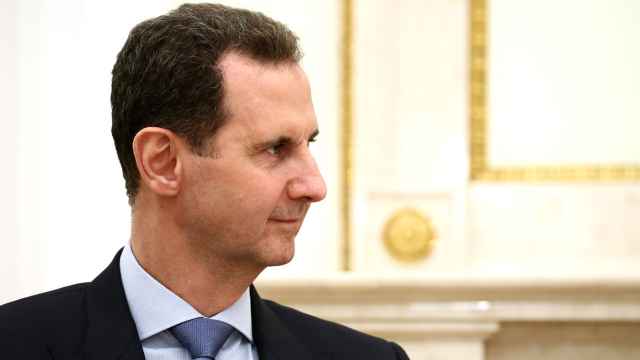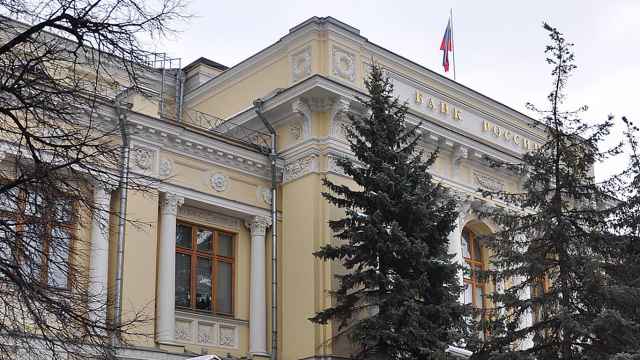About 50 protesters rallied in southern Moscow on Sunday in the latest confrontation in a struggle that echoes the battle over the Khimki Forest road.
Local residents and environmental groups are challenging the construction of a new metro line beneath Bitsevsky Forest Park.
The new line would connect orange-line station Novoyasyenevskaya with Bulvar Dmitriya Donskogo, a stop on the gray line just south of the Moscow Ring Road.
The extension would entail building a new line running diagonally northwest to southeast through a section of Bitsevsky Park. It would also include a new connecting station and a completely new station, dubbed Lesoparkovaya, in the middle of the forest where it is bisected by the Moscow Ring Road.
Environmentalists and local residents are up in arms over the project, complaining that work started in October, but that the first "public consultation" — required under Russian law — did not take place until January, when construction work was already in full swing.
A local initiative group, Residents of Yasnevo in Defense of Bitsevsky Forest, said last week that they received a letter from the Federal Inspection Service for Natural Resources Use confirming that an expert commission had found "discrepancies" between the project and environmental legislation.
At the end of January, Greenpeace Russia and the World Wildlife Fund wrote to prosecutors calling for an investigation because work was going ahead before completion of a state environmental review required by law for such projects.
A Message from The Moscow Times:
Dear readers,
We are facing unprecedented challenges. Russia's Prosecutor General's Office has designated The Moscow Times as an "undesirable" organization, criminalizing our work and putting our staff at risk of prosecution. This follows our earlier unjust labeling as a "foreign agent."
These actions are direct attempts to silence independent journalism in Russia. The authorities claim our work "discredits the decisions of the Russian leadership." We see things differently: we strive to provide accurate, unbiased reporting on Russia.
We, the journalists of The Moscow Times, refuse to be silenced. But to continue our work, we need your help.
Your support, no matter how small, makes a world of difference. If you can, please support us monthly starting from just $2. It's quick to set up, and every contribution makes a significant impact.
By supporting The Moscow Times, you're defending open, independent journalism in the face of repression. Thank you for standing with us.
Remind me later.





